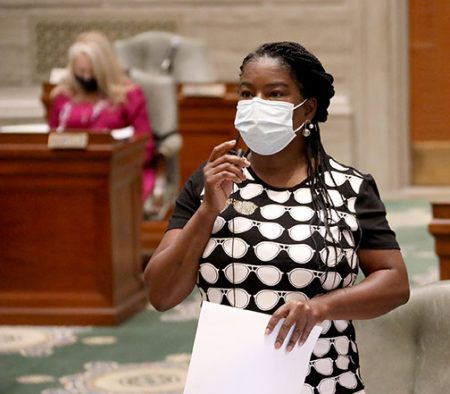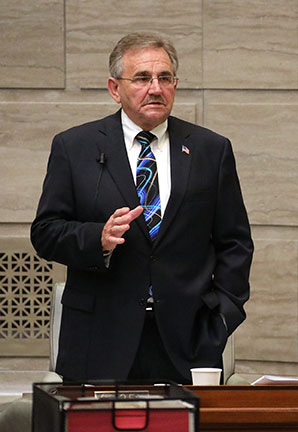The Missouri General Assembly meets for little more than four months each year, from January through mid-May. With the exception of a short veto session in September, which is devoted exclusively to revisiting any bills rejected by the governor, the chambers of the Missouri Senate and House of Representatives remain quiet seven months each year. Once the gavel falls in May, except for extraordinary circumstances, no additional laws are passed until the Legislature convenes again in January.

And yet, since July 27, the Missouri General Assembly has been in session, considering legislative proposals. The Legislature was summoned back to the Capitol by the governor, who is granted the authority to call additional legislative sessions “on extraordinary occasions.” Article IV, Section 9 of the Missouri Constitution says the governor, “may convene the General Assembly by proclamation, wherein he shall state specifically each matter on which action is deemed necessary.”
The governor’s proclamation calling the General Assembly back into session this year outlined six measures intended to combat violent crime in Missouri’s metropolitan areas. On Aug. 10, he expanded his call with an additional legislative request. Deliberations regarding those proposals are expected to continue through the beginning of September.
Many often refer to the additional legislative activity of 2020 as a “special session,” but that is not technically correct. According to the Constitution, the governor may convene an “extra” session. A “special” session may only be called by the Legislature itself.
Since 1988, Missouri’s Constitution has allowed the General Assembly to call itself into special session. A petition to convene a special session requires signatures from three-fourths of the members from both legislative chambers and must state the specific purpose for the additional session. The Legislature has exerted this authority only once – in 2018, to consider impeaching a sitting governor.

Prior to 1972, the Missouri General Assembly convened biannually. The extra session provision of the Constitution provided a mechanism for lawmakers to address important statewide issues in the off years, when the Legislature was not scheduled to meet. Even now, when the General Assembly convenes every year, extra legislative sessions, such as the one currently underway, are relatively common. Ten extra sessions have been called since 2001. Twice in recent history, the governor has called two extra sessions in the same year. In the past, legislators have been called back to Jefferson City to finish work on legislation not passed during regular sessions or to respond to unexpected events. In 1993, the Legislature was summoned to fund recovery efforts following devastating floods. The following year, legislators impeached Missouri’s secretary of state during an extra session. Several extra sessions have focused on legislation aimed at attracting major industrial expansion projects.
Although special sessions called by the Legislature are limited to 30 days, an extra session called by the governor can last up to 60 days. The current extra session, like all those in the past, is limited in scope and specifically focused on issues included in the governor’s call for an extra session. The eventual outcome, however, is in the hands of lawmakers. Time will tell how this extra session is recorded in Missouri legislative history.
